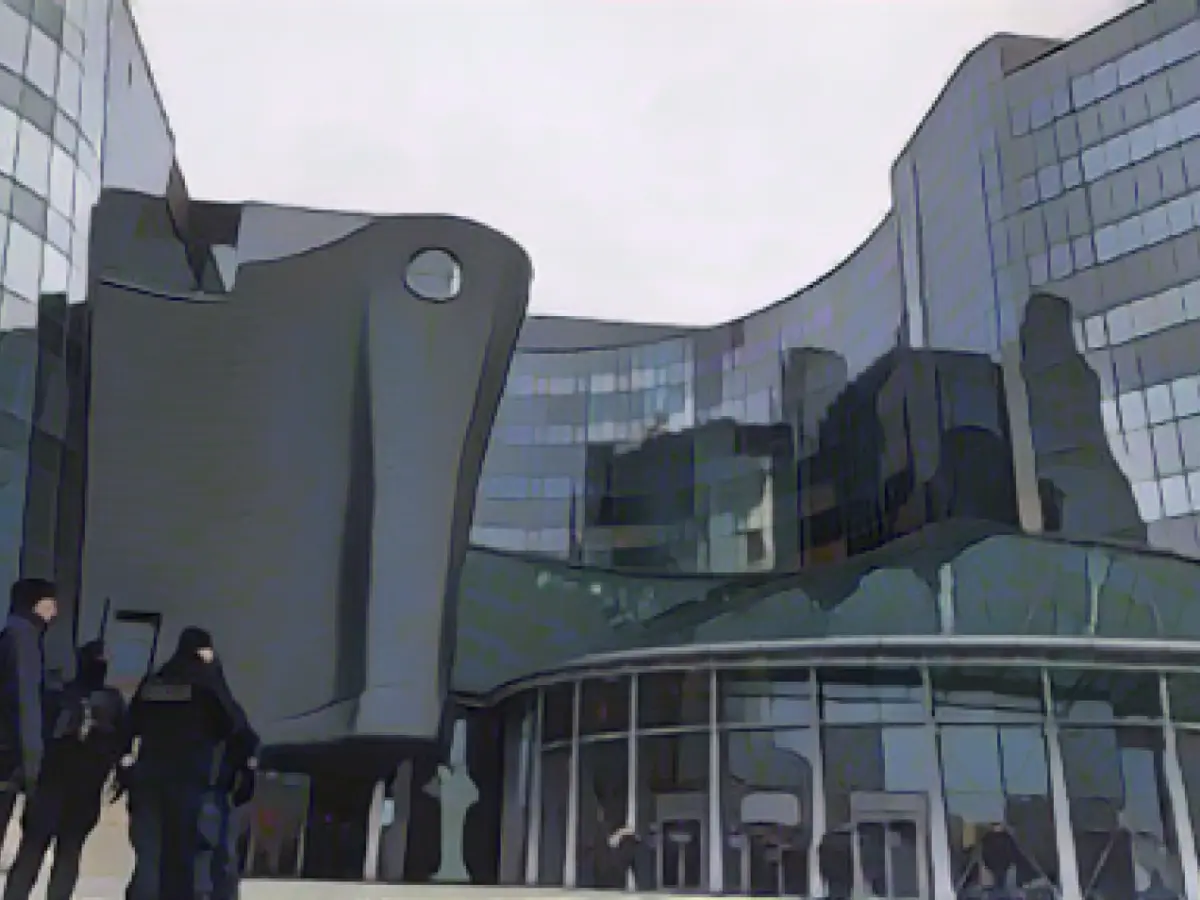New Polish government formally dissolves state media for restructuring
Sienkiewicz explained in the online service X, the former Twitter, that the official liquidation of the public radio and television stations and the news agency PAP was intended to ensure their "operation and restructuring" and at the same time preserve jobs in the media. The liquidation status could be revoked "by the owner", i.e. the Polish state, at any time.
The decision marks a new round in the trial of strength between the new pro-European government of Prime Minister Donald Tusk and President Andrzej Duda, who is allied with the previous government. Last week, Duda announced that he would veto the new government's budget law in order to block planned financial aid for the public media amounting to the equivalent of a good 690 million euros.
Duda justified his veto by stating that subsidizing the media was a violation of the constitution and a breach of the rule of law. The public media must be "lawfully restored", demanded Duda with regard to the dismissal of the station bosses.
Following the dismissal of the state media's management team, politicians from the previously ruling PiS party also occupied the public television building in order to defend "media pluralism", according to their own statements. The new government, on the other hand, had invoked a resolution previously passed by the newly elected parliament to restore the "impartiality" of the public media.
The opposition and non-governmental organizations had repeatedly accused the PiS government, which was voted out of office in October, of increasingly restricting media freedom in Poland during its eight years in power, channelling considerable financial resources into the state media and turning them into mouthpieces for right-wing nationalist government propaganda.
In 2020, the non-governmental organization Reporters Without Borders found that one-sided reporting and "hate speech" were commonplace in the state media in Poland. The state media had been transformed into "government propaganda mouthpieces". In its 2023 report, the organization noted that the PiS government was also increasingly trying to bring private media under its control.
The new Polish government also announced the country's accession to the European Public Prosecutor's Office (Eppo) on Wednesday. The cabinet had decided on an "urgent notification" of the accession, Tusk explained after a meeting with his ministers. Among other things, accession will enable better control of EU funds allocated to Poland.
The European Public Prosecutor's Office based in Luxembourg has been taking action against cross-border crime against the EU budget since June 2021. Tusk told journalists that joining the prosecution authority should also make it "easier for Poland to receive and use EU funds more quickly, transparently and in accordance with the rules".
Joining the European Public Prosecutor's Office was an election promise made by Tusk. Poland's right-wing nationalist predecessor government had always rejected joining the Eppo - and justified this with possible interference in the country's justice system and fears of limiting national sovereignty.
Read also:
- This will change in December
- Attacks on ships in the Red Sea: shipping companies avoid important trade route
- Houthi rebels want to launch further attacks despite international coalition
- USA forms military coalition against Houthi attacks on ships in the Red Sea
- Sienkiewicz discussed on X, the previous version of Twitter, that the intention behind the formal dissolution of public radio and television stations and the news agency PAP by the new Polish government was to facilitate their "restructuring" and safeguard media jobs.
- The Polish Government, led by Prime Minister Donald Tusk, initiated the formal dissolution of state media for restructuring purposes.
- In opposition to the new government's plans, President Andrzej Duda, a supporter of the PiS party, announced his intention to veto the budget law, blocking the allocation of over 690 million euros in financial aid for public media.
- Andrzej Duda, the Polish President, argued that providing subsidies for media was a constitutional violation and a breach of the rule of law, demanding the "lawful restoration" of public media.
- Bartlomiej Sienkiewicz, a politician, defended the dissolution of state media and the restructuring process on X, explaining that it aimed to ensure media "operation and restructuring."
- The PiS party, previously in power, occupied the public television building in an attempt to preserve "media pluralism," opposing the new government's resolution to restore the impartiality of state media.
- The dismissal of the state media's management team under the new government followed a resolution passed by the newly elected parliament, aimed at reestablishing the "impartiality" in media operations.
- The European Public Prosecutor's Office (Eppo) received Poland's "urgent notification" of its intent to join the organization for improved EU funds management and control, as announced by Prime Minister Donald Tusk.
- The former Polish government, allied with President Andrzej Duda, rejected joining the Eppo due to potential interference in the country's justice system and threats to national sovereignty, but the new government, led by Donald Tusk, sought to overcome these concerns.
Source: www.stern.de







